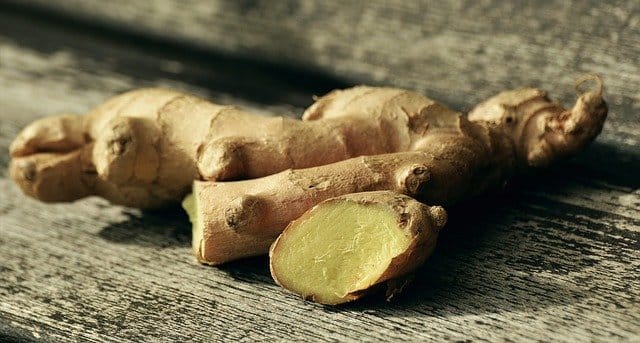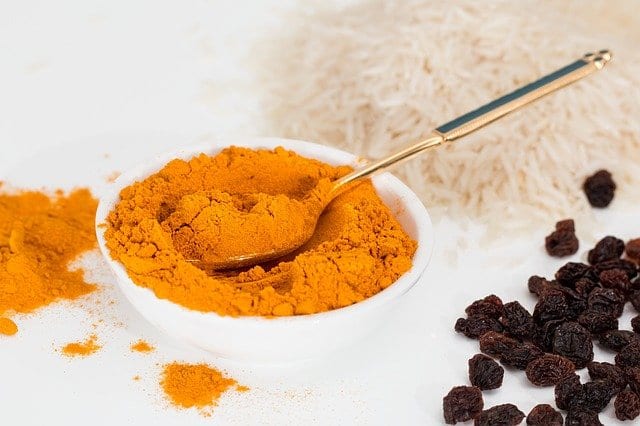Turmeric to Methi: Top ten foods to consume during monsoon season
Ginger and Garlic help combat chills and fever, eliminate congestion, and have anti-viral properties. They have anti-inflammatory, antibiotic, and antioxidant effects. Ginger tea can help ease throat pain. Ginger crushed or its extract can be added with Honey for children above the age of 1 year. Garlic also has antimicrobial/ antifungal properties, it is an effective immune stimulant. It can be added to gravies, Chutneys, soups, tea, etc.
- Include plenty of warm fluids like soup, masala tea, green tea, broth, dal, etc. as they are good for hydration and great for the immune system
- Methi is an energy booster, and it contains all the necessary minerals for it to take care of our body, even during fever and digestive disorders
Trending Photos
) Pic courtesy: Instagram
Pic courtesy: Instagram New Delhi: Monsoon brings different memories to each one of us. For some it is playing and running in the rain as kids, to others having a hot cup of coffee or tea sitting by the window. For some others it is eating a plate full of pakoras or staying sick due to seasonal flu. While the monsoon has its own charm, it is also a season that brings along different diseases. Here are the top 10 food items to consume to maintain a better health during monsoon:
1. Green Peppercorns: Green Peppercorns contain Piperine, an alkaloid that has various health benefits. It also has a significant amount of Vitamin C and K. Green Peppercorns contain antioxidants that can help prevent serious diseases by deactivating free radicals. Green Peppercorns can reduce gas by stimulating the production of Hydrochloric Acid, which improves food digestion. It also has antimicrobial properties, which means that it may be able to reduce the risk of food poisoning by eliminating the bacteria responsible for foodborne illnesses.
2. Fruits: Seasonal fruits like Peaches, Plums, Cherries, Jamun, Pomegranate are packed with Vitamin A and C, Fibre, and Antioxidants. Avoid eating pre-cut fruits and juices from roadside vendors and stick to high quality fresh cut fruits and juices preferable made at home.

3. Fluids: Include plenty of warm fluids like soup, masala tea, green tea, broth, dal, etc. as they are good for hydration and great for the immune system.
4. Vegetables: It is a season of Gourds, like Snake Gourd, Bottle Gourd, Indian Squash, Ridge Gourd, etc. Include Gourd vegetables in various preparations like vegetables, paratha, soup, raita, etc. Eat steamed salads instead of raw vegetables as they contain active bacteria and viruses that may cause bacterial and viral infections.
5. Probiotics: Include probiotics like Curd, Buttermilk, Kefir, pickled vegetables to make your gut flora healthy. These probiotics help boost the growth of good bacteria in the gut, that helps fight the bad bacteria or the disease-causing bacteria from the gut.
6. Proteins: Including healthy proteins in your meals helps increase immunity and also facilitates recovery from illnesses. Milk and milk products, pulses like Moong, lentils, Chole, Rajma, Soya, Egg, and Chicken are good sources of healthy proteins.

7. Ginger and Garlic: Ginger and Garlic help combat chills and fever, eliminate congestion, and have anti-viral properties. They have anti-inflammatory, antibiotic, and antioxidant effects. Ginger tea can help ease throat pain. Ginger crushed or its extract can be added with Honey for children above the age of 1 year. It can be added to soups or in tea for the elderly. Garlic also has antimicrobial/ antifungal properties, it is an effective immune stimulant. It can be added to gravies, Chutneys, soups, tea, etc.

8. Fenugreek seeds/ Methi: Fenugreek is an energy booster, and it contains all the necessary minerals for it to take care of our body, even during fever and digestive disorders.
9. Turmeric: Turmeric has Curcumin, that has antioxidant, antimicrobial effect by inhibiting microbial growth like H. Pylori, MRSA, etc., it prevents gastric ulcers, improves immune response, and antimalarial activity among other protective and preventive functions. Indian food traditionally has Turmeric in the food preparation, but consumption of these food items will be variable especially for children and the elderly members for various reasons. A teaspoon of Turmeric as Turmeric milk/ latte, Turmeric with Honey or in hot water would be a good add on for children and elderly members of the family especially during monsoon.

10. Omega 3 Fatty Acids: Omega 3 Fatty Acids are essential fatty acids that also have immune modulatory effects. In monsoon where the risk of infection through food and water increases, increasing immunity would help fight these infections to an extent. Omega 3 Fatty Acids are present in food sources like fish, shrimp, oysters, nuts, and oil seeds like Walnuts, Pistachio, Chia seeds, Flax seeds, etc. which could easily be incorporated into one's diet.
Stay informed on all the latest news, real-time breaking news updates, and follow all the important headlines in india news and world News on Zee News.
Live Tv







)
)
)
)
)
)
)
)
)
)
